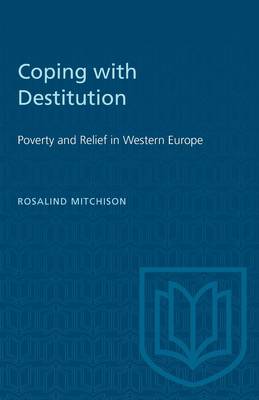
- Retrait gratuit dans votre magasin Club
- 7.000.000 titres dans notre catalogue
- Payer en toute sécurité
- Toujours un magasin près de chez vous
- Retrait gratuit dans votre magasin Club
- 7.000.000 titres dans notre catalogue
- Payer en toute sécurité
- Toujours un magasin près de chez vous
Description
Food banks, welfare cheques, and shelters for the homeless are the modern face of a timeless problem. Rosalind Michison explores the historical context of poverty and relief in a study that covers four centuries of European history.
During the sixteenth century, authorities (both lay and ecclesiastical) and individuals alike showed a marked concern over the state of the poor in Western Europe. Mitchison analyses the nature of this concern and its possible causes. She then examines relief system as set up in various countries, comparing the approach of Catholic and Protestant states, and assessing what they had achieved by the mid-eighteenth century. Among the issues she discusses are the problems of funding and different possible bases for this, the issue of church or state control of poor relief, and the role of military developments in changing attitudes towards poverty and destitution. The last section of the book concentrates on developments within Britain and Ireland and examines the influence of social theories on the quality of provision.
The chapters carry notes containing references to particular studies on various countries. These are supplemented by a further bibliography. In all, this is a thoughtful and timely overview of an important segment of European social history.
Spécifications
Parties prenantes
- Auteur(s) :
- Editeur:
Contenu
- Nombre de pages :
- 112
- Langue:
- Anglais
- Collection :
Caractéristiques
- EAN:
- 9781487581473
- Date de parution :
- 15-12-91
- Format:
- Livre broché
- Format numérique:
- Trade paperback (VS)
- Dimensions :
- 140 mm x 216 mm
- Poids :
- 149 g







